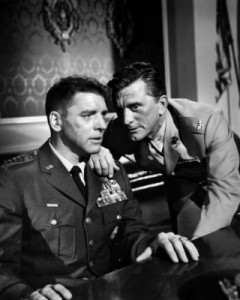Professional ethics
Back in the previous century when I was a captain in the USAF, I had the privilege of attending the Air Force Institute of Technology. I recall especially well a course on military ethics, taught by a tough old retired Marine with a remarkable command of history, philosophy, and rhetoric. Many memories of the class have stayed with me. I remember discussions about “just war doctrine,” and heated debates about Bomber Harris, Project Paperclip, Vietnam, and more.
Just lately, while reading Maurice Casey’s Jesus: Evidence and Argument or Mythicist Myths? I began to think of another subject we talked about in that ethics class from so long ago, namely, professionalism. We live in a world in which our dependence on professionals and experts increases every year. The depth of knowledge required for many areas of expertise is so great that you and I will never have the time or the necessary access to materials to become competent. If we have a problem with the law, we seek a licensed attorney’s advice. If we have a health issue, we go to a medical doctor.
The specific knowledge of each profession varies, but professionalism itself is constant. With great trust comes great responsibility. Some desirable traits or models of behavior for professionals include:
- Knowledge: A deep understanding of your field and a commitment to keep up with new information as needed, along with the diligence to attain and maintain accreditation.
- Honesty and Integrity: A commitment to your clients, students, customers, or patients, as well as your peers to be truthful and to do the right thing, even when no one is looking. People trust you because of your professional standing. Don’t betray that trust.
- Accountability: Taking responsibility for your actions and making things right if you fail to deliver.
- Respect: Treating others with kindness and respect, since you are a representative of your profession. You must balance confidence with humility.
- Loyalty: Standing by the people who depend on you, especially when the going gets tough.
Conflicts of ethical behavior

Sometimes these goals conflict with one another. For example, what do you do if witness a friend doing something wrong? Are you bound by your code of ethics to report him or are you bound by your to loyalty to your colleague? Different cultures have dramatically different ways to deal with that question. In some societies, it’s common for people to lie for a friend, because their loyalty to a friend or relative far outweighs any man-made rule. In other societies, such as many English-speaking countries, telling the truth is viewed as an absolute virtue.
Of course, that doesn’t mean we’re comfortable with our choices. As an officer, I was taught not to lie, cheat, or steal, or tolerate those who do. For some of us, this dictum was hard to swallow. Since when did being a snitch become praiseworthy?
If you’ve ever watched Seven Days in May, you’ve seen an excellent portrayal of a fictional officer dealing with that very problem. Deep down, Kirk Douglas’s character knows he must tell the President what his boss is planning, but that doesn’t make the breach of loyalty any easier.
So we all know from fiction and probably from firsthand experience the struggle people experience when they witness incompetence or bad behavior by a fellow professional in their field. Is it your duty to tattle on that person? Does honesty trump loyalty?
Continue reading “Maurice Casey, Professionalism, and the Starless-and-Bible-Black Wall of Silence”
